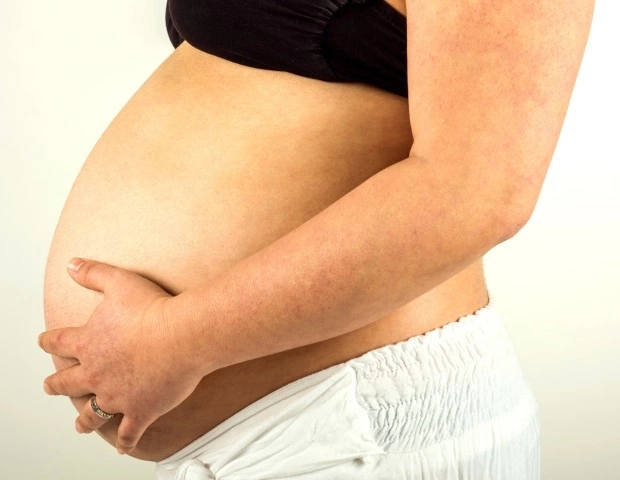Pregnant women with COVID-19 are extra probably to have complications with pregnancy and birth in contrast to these with out, in accordance to analysis publishing November 30th in the open-access journal PLOS Medication. The research appears at hospitalization for births in France in the course of the first six months of the pandemic and means that vaccination could also be helpful to defend women and their infants, significantly for women at a better risk of creating extreme COVID-19 infections.
Few research have checked out associations between COVID-19 and pregnancy outcomes, significantly in the course of the first wave in early 2020. Sylvie Epelboin and colleagues from the Universite de Paris analyzed knowledge for hospitalizations for birth after 22 weeks gestation in France between January and June 2020. Till 15 March, all confirmed instances of COVID had been hospitalized however after this hospital admission was primarily based on the medical situation of the affected person. Of 244,465 births in hospital, 874 or 0.36% of moms had been recognized with COVID-19.
Women in the COVID-19 group had been extra probably to be older, have weight problems, be carrying a couple of child, or have a historical past of hypertension in contrast to these with out. The women with COVID-19 had a better frequency of admission to ICU; dying; preeclampsia and eclampsia; gestational hypertension; hemorrhage both earlier than or after birth; very untimely spontaneous or induced birth; and cesarean part. Charges of pregnancy terminations, stillbirths, gestational diabetes, placenta previa, placental abruption, and blood clots weren’t elevated.
Learn Additionally: ILO – Stigma and discrimination remain major issues for workers with HIV/AIDS
Being conscious of those complications is vital for health care suppliers to help pregnant women and present the perfect care. The authors consider that though causality can’t be established in this research, vaccination to defend pregnant women from COVID-19 could also be helpful, significantly for these in increased risk teams.
Learn Additionally: WHO Pandemic Ethics & Policy Summit (6th Dec., 2021)
The authors add, “We conducted a retrospective analysis of prospectively collected data in a national cohort of all hospitalizations for births ≥22 weeks of gestation occurring in France from January to June 2020 using the French National hospitalization database, including a total of 244645 births, of which 874 (0.36%) with COVID-19 diagnosis. When compared to the non-COVID-19 group, women in the COVID-19 group were associated to an increased frequency of admission to ICU, mortality, preeclampsia/eclampsia, gestational hypertension, postpartum hemorrhage, spontaneous and induced preterm and very preterm birth, fetal distress and Cesarean section.”
Supply:
Journal reference:
Epelboin, S., et al. (2021) Obstetrical outcomes and maternal morbidities related to COVID-19 in pregnant women in France: A nationwide retrospective cohort research. PLoS Medication. doi.org/10.1371/journal.pmed.1003857.



